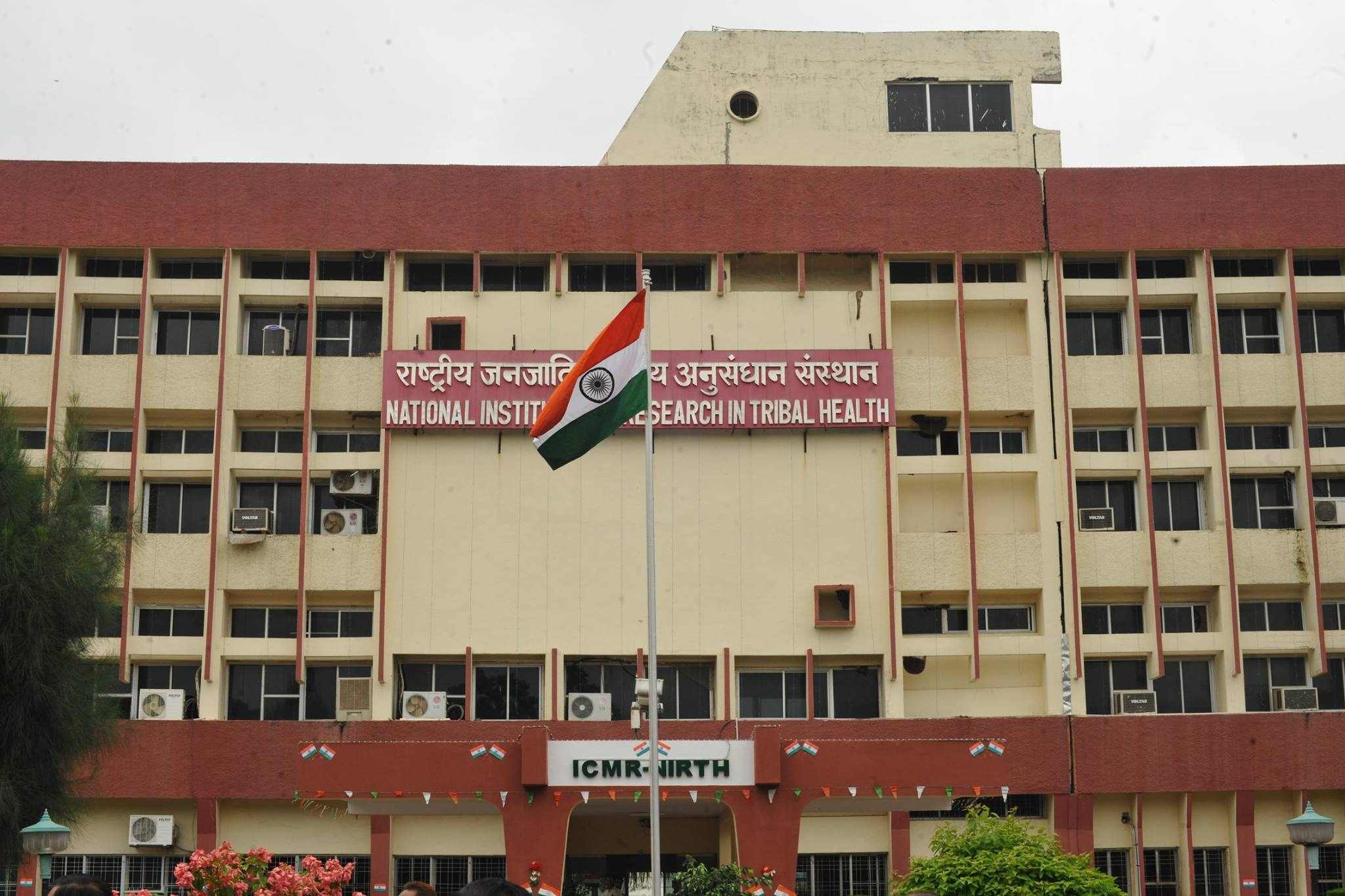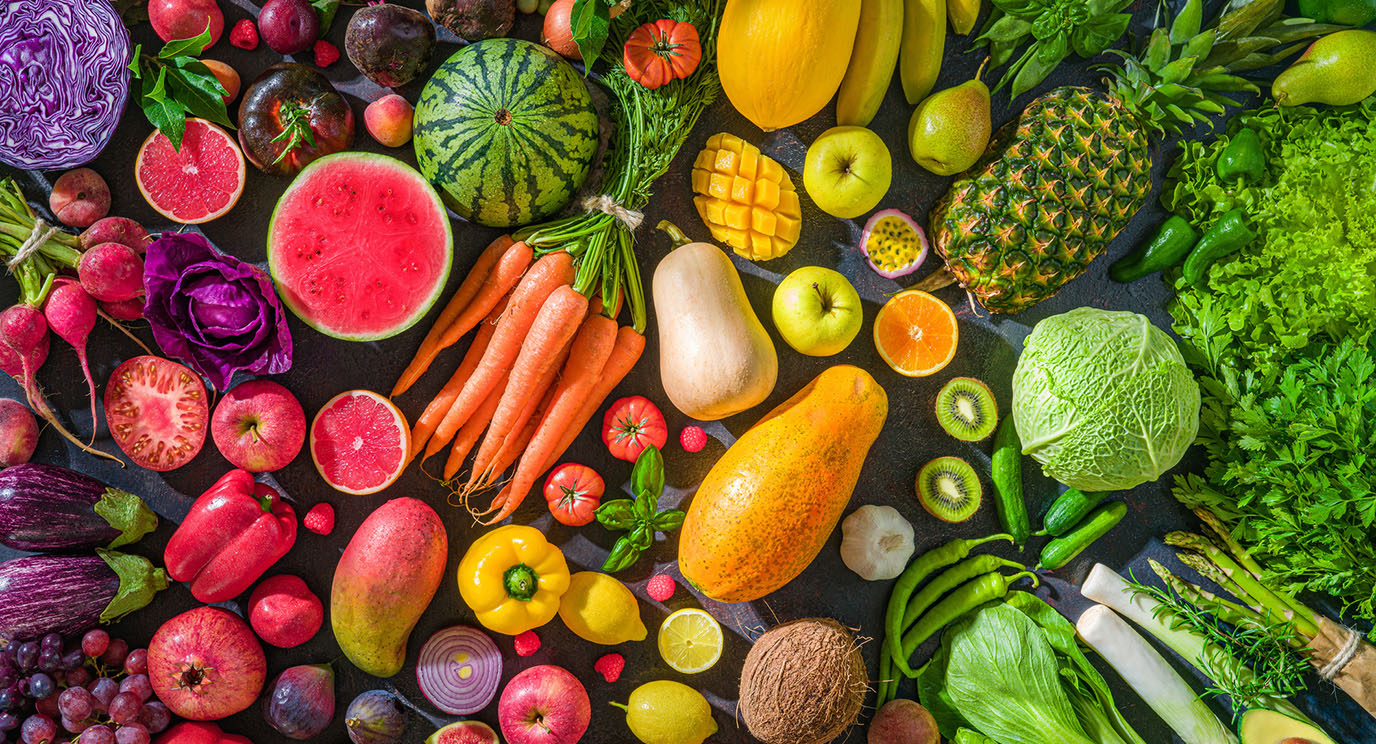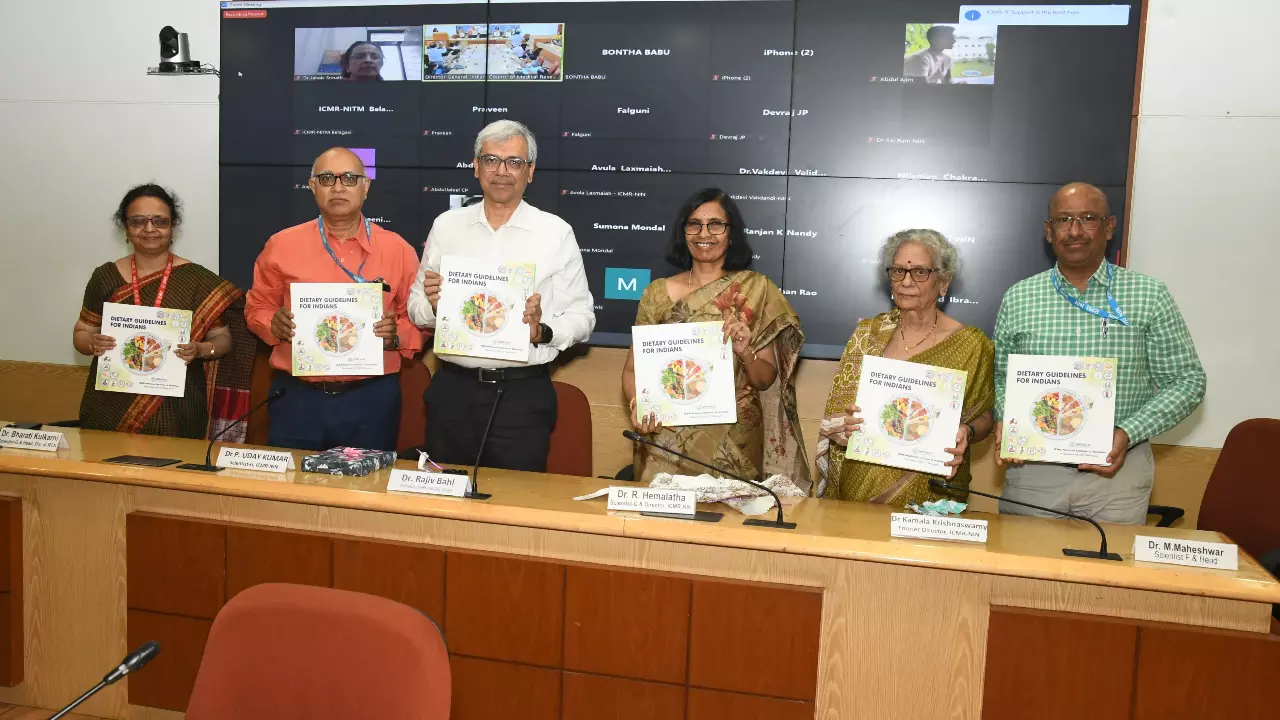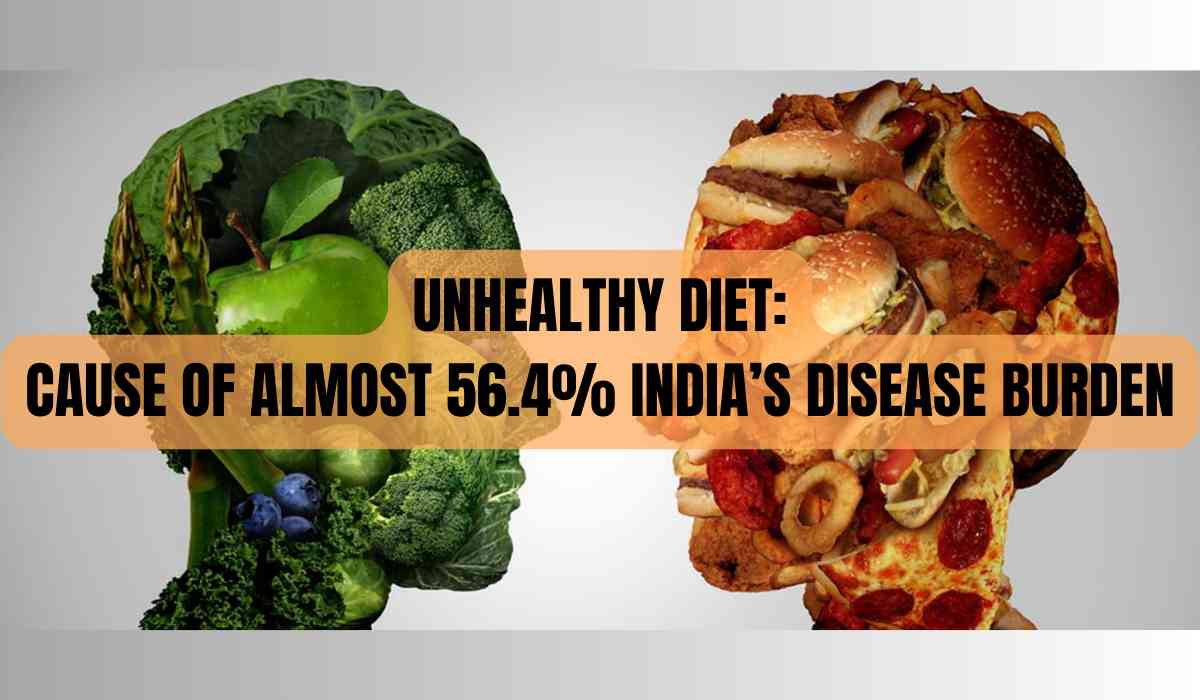India's latest dietary guidelines: Less sugar, more spice, and everything nice – well, maybe not the sugar part. The new rules aim to cut the sweet stuff and sprinkle in healthier habits to fight off the nation's diet-related woes.

The Indian Council of Medical Research (ICMR) and the National Institute of Nutrition (NIN) jointly issued updated dietary guidelines for Indians, recommending reduced sugar and salt intake, substitution of cooking oil with oilseeds, and other measures. These guidelines aim to combat non-communicable diseases (NCDs) like obesity, diabetes, and coronary heart disease.
NIN reports that unhealthy dietary habits contribute to 56.4% of diseases in India, advocating for healthier eating and increased physical activity to decrease the risk of CHD, hypertension, and type 2 diabetes by up to 80%. Processed foods high in sugar and salt, coupled with sedentary lifestyles, lead to micronutrient deficiencies and obesity among Indians.
The guidelines emphasize limiting salt intake, moderating fat consumption, incorporating physical activity, and avoiding sugar and ultra-processed foods. They recommend a daily sugar intake of 20-25 grams if consumed at all. Led by Dr. Hemalatha R, Director, the Dietary Guidelines for Indians (DGIs) underwent rigorous scientific review, resulting in 17 new dietary recommendations.

17 New Dietary Guidelines
-
Diversify Your Diet: Incorporate a range of foods to maintain a well-rounded diet.
-
Support for Mothers: Ensure expecting and lactating mothers receive sufficient food and healthcare.
-
Promote Breastfeeding: Encourage exclusive breastfeeding for the first six months, continuing for two years and beyond.
-
Introduction of Complementary Foods: Introduce homemade semi-solid complementary foods to infants after six months.
-
Nutritional Support for Children and Adolescents: Provide adequate and suitable diets for children and adolescents, addressing both health and illness.
-
Emphasize Vegetables and Legumes: Consume ample vegetables and legumes for nutritional benefits.
-
Mindful Use of Oils/Fats: Moderately use oils/fats, opting for diverse sources like oil seeds, nuts, and legumes to fulfill daily fat and essential fatty acid requirements.
-
Balanced Protein Intake: Obtain quality proteins and essential amino acids through a balanced diet, avoiding reliance on protein supplements for muscle building.
-
Healthy Lifestyle Practices: Embrace a healthy lifestyle to prevent abdominal obesity, overweight, and overall obesity.
-
Regular Physical Activity: Stay active and engage in regular exercise to uphold good health.
-
Limit Salt Consumption: Restrict intake of salt for better health management.
-
Ensuring Food Safety: Consume safe and hygienic foods to prevent health risks.
-
Appropriate Cooking Techniques: Employ suitable pre-cooking and cooking methods for healthier meal preparation.
-
Adequate Hydration: Drink sufficient water for proper hydration.
-
Reduce Intake of Unhealthy Foods: Minimize consumption of high-fat, sugar, salt, and ultra-processed foods for improved health.
-
Nutrient-Rich Diets for Elderly: Include nutrient-rich foods in the diets of the elderly to support their health and well-being.
-
Informed Food Choices: Read and understand food labels to make informed and healthy food choices.
The Indian Council of Medical Research (ICMR) and the National Institute of Nutrition (NIN) collaborated to develop guidelines aimed at combating malnutrition in India. Formulated by a team of experts, these guidelines offer practical, sustainable solutions for promoting long-term health. They advocate for the consumption of diverse, nutritious foods, emphasizing their role in fostering overall well-being and disease prevention. Easy to implement, these guidelines are designed to benefit all individuals across India.

Key Recommendations for a Healthier Lifestyle
The National Institute of Nutrition (NIN) has formulated several vital strategies to effectively combat the prevalence of Non-Communicable Diseases (NCDs):
-
Moderation in Consumption: Emphasizing moderation in oil, fats, salt, and sugar intake, NIN aims to mitigate the risks of coronary heart disease, hypertension, and type 2 diabetes prevalent in the Indian population.
-
Exercise and Physical Activity: Encouraging regular physical activity alongside a balanced diet, NIN underscores its importance in preventing conditions such as obesity and related health issues.
-
Dietary Diversity and Nutrient Intake: Recommending the consumption of macronutrients and micronutrients from at least eight food groups, NIN aims to ensure a balanced diet across all age groups, thus preventing micronutrient deficiencies.
-
Limiting Ultra-Processed Foods: Advising against the consumption of ultra-processed or processed foods due to their high sugar, salt, and fat content, NIN highlights their contribution to micronutrient deficiencies and exacerbation of overweight issues.
-
Informed Food Choices: Encouraging the habit of checking food labels to facilitate healthy food choices, NIN aims to help consumers avoid foods high in sugars, fats, and salts, thereby preventing obesity.
-
Avoidance of Protein Supplements: Urging people to refrain from using protein supplements to enhance muscle mass, NIN warns against the potential serious consequences such as bone mineral loss and kidney damage. Contrary to popular belief, excessive consumption of protein supplements may not necessarily lead to increased muscle mass and strength.

To lead a healthy and prolonged life, adhering to the new ICMR dietary guidelines is advisable. Adopting a balanced and nutritious diet while steering clear of processed and junk foods can significantly contribute to overall well-being.
Read here the complete PDF: Dietary Guidelines for Indians
With inputs from agencies
Image Source: Multiple agencies
© Copyright 2024. All Rights Reserved Powered by Vygr Media.




















